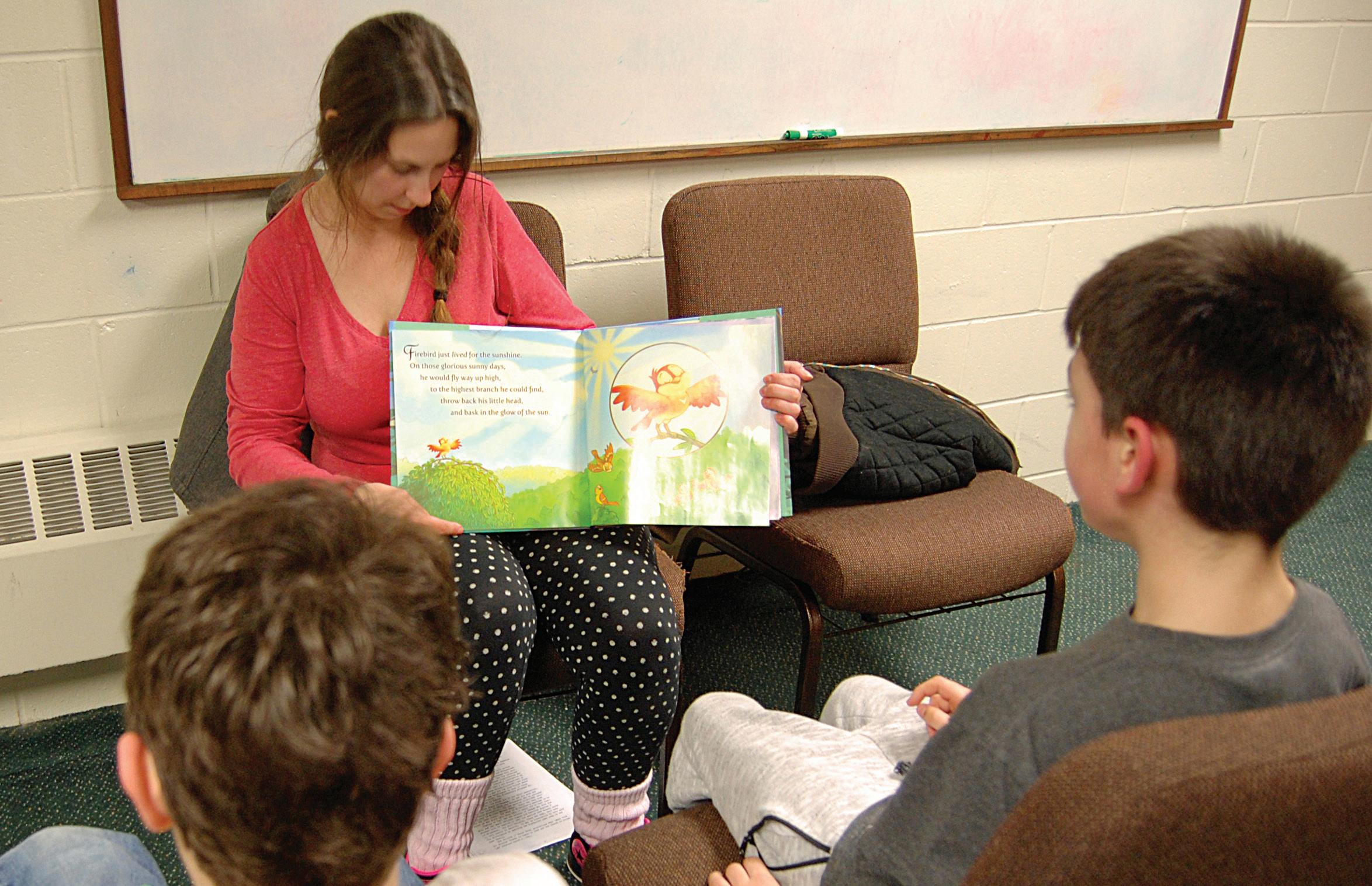
3 minute read
Raising Children Advocacy and support for ALL
Arc Northland helps parents navigate services for special needs
STORY AND PHOTOGRAPHY BY KATHLEEN MURPHY
It can be daunting for a parent to discover their child has a learning disability. Where do they turn for help? When the children are young, a pediatrician is a good resource to point parents in the right direction. But what about once the child reaches school age? How can a parent ensure their child is receiving the care and attention they require in order to thrive in a school setting?
“We’re the people to call if you feel your child is not receiving the services they need at their school, or if you simply need help navigating the special education system, which can be confusing,” said Meredith Kujala, a community organizer and advocate who works for Arc Northland, a local nonprofit that provides advocacy, education and supportive services for individuals and families with disabilities. Arc Northland provides services such as housing and personal care assistance, but one of the most common services they provide is serving as advocates for families of children with disabilities who are struggling with their child’s school.
When a child requires services, the parents work with the school to put in place either an IEP (Individualized Education Program) or a 504 Plan. Both strive to place the child into a positive learning environment with tools to help them succeed. The overall goal is to give the child an education comparable to the one received by any peer who may not have a disability. For the school to determine if a child qualifies for an IEP, the child must have one of 13 diagnosed disabilities that is affecting their academic progress. These special education services are covered under the Individuals with Disabilities Education Act (IDEA) and require a formal assessment and diagnosis by the school.
“This does not mean the child will necessarily be in special education classes,” Kujala said. “A successful IEP focuses on providing modifications and accommodations that the child needs to succeed in their learning environment. For example, I’ve worked with students whose learning disabilities don’t allow them to function at full capacity for a full school day, so they have a four-hour school day.”
Some students don’t meet the criteria for an IEP, but would benefit from some accommodations. If they do not meet the criteria required by IDEA, they may still qualify for help under SECTION 504 of the Rehabilitation Act of 1973, known more simply as a “504 Plan.” This approach can bring smaller changes, such as giving the child more time on standardized tests if they have distraction issues, or asking the school to supply an audio version of a book for kids with dyslexia. “There are so many simple things that can help a student,” Kujala said. “If we’re creative enough, we can always figure out something that will help the student succeed, like fidget spinners or access to quiet testing areas.”
“Arc Northland can’t give legal advice,” Kujala said, “but we can meet with you to discuss concerns, refer you to other helpful resources, and even attend meetings at the school to act as your advocate. Basically, we’re there to bridge the gap between parents and school officials.”
“Unfortunately, it’s easy for a parent to feel attacked or on the defensive during meetings with the school,” said
To obtain services from Arc Northland, or to get information on Extreme Parenting groups, call (218) 726-4725.

Extreme Parenting Duluth meets first and third Tuesdays of each month, 5:30-7:00 p.m. at First Lutheran Church, 1100 London Road, canopy entrance.
Extreme Parenting Two Harbors meets the first Thursday of each month, 5:30-7:00 p.m. at First Baptist Church, 602 15th Ave., Two Harbors.
Jamie Harthan, a Two Harbors parent of an 8-year-old boy with autism. “It’s nice to have a professional in the room who knows our rights. There is help; you don’t have to do it alone. Arc is available with one easy phone call.”
What about support outside of school hours? “Parents can best support other parents,” said Brenda Caya, an adult and family services advocate with Arc Northland. Extreme Parenting is an Arc-sponsored education and support group for parents who have children with emotional and behavioral disabilities. They meet once or twice a month at various locations around the Northland, and make a point to reduce barriers that might prevent families from participating and getting the support they need. Most meetings provide a meal, child care and sometimes even transportation, all free of charge.
“It’s easy to feel isolated and like you’re doing something wrong when your child has disabilities,” said one parent at the Two Harbors Extreme Parenting group. “This group provides one-on-one support and provides an atmosphere where the children feel welcome. It’s invaluable to me.”
The group is more than just a social group. They actively work to make changes within their school district and area resources. “Right now, we’re petitioning an area swimming pool to provide adaptive swim lessons,” Harthan said. “If only one person asks for adaptive lessons for their child, it’s easy to ignore. But many people asking can see better results. Together, we form a group voice that’s harder to ignore.” The group also discussed how to obtain care plans with their primary care physicians and clinics. The issues that arise at the doctor’s office have proven to be similar to the issues at school, most members have found.
“Everywhere we go, we deal with issues most people can’t comprehend,” one group parent said. “Arc Northland and Extreme Parenting members understand this and help me to educate myself and to teach other people acceptance. This isn’t just parenting. It’s extreme parenting.”










